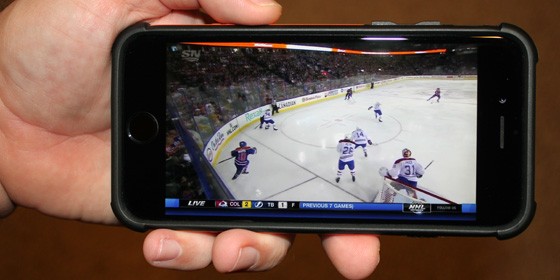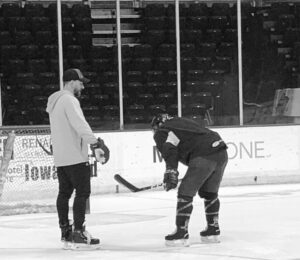KGB Vol 23: Observational learning

Over the years, I have created what I like to call the “performance pyramid.” The base of the pyramid is formed by daily habits that set the stage for elite performance. At the top of the pyramid is simply observing top performers in your field. This is known as “observational learning.” Plenty of published research exists on this topic and one thing that is a direct result of observational learning is an increase in self-efficacy. Self-efficacy is an individual’s personal belief in their ability to accomplish a given achievement.
Kwan et al. state that “observing a person similar to oneself successfully performing a task can increase the efficacy of the observer.” Simply stated, watching someone who you connect with have success in a task that you also perform will increase your ability to perform that same task.
In the world of psychology, Albert Bandura went a step further as he laid out his social learning theory. He said for observational learning to be effective and complete, four conditions must be present: attention, retention, reproduction, and motivation.
Coaches who want to optimize their players’ performance will make sure that they are paying attention, that they are taking time to rehearse and remember the desired behavior, that they have the time and ability to reproduce the technique, and that they see outcomes of the behavior that will provide players with the motivation to continue to work on that skill.
As coaches, we want nothing more from our teams and players than self-efficacy. We want to prepare them to cope with both success and failure and to perform at the highest levels. The experiences they gain from both successes and failures should be scripted in a positive way and turned into healthy learning experiences.
Who do we look to as coaches to create these positive observational learning experiences? It could be observing another coach for whom you have great respect and observing their technical and tactical approach to the game during times of great success.
There is also evidence that there are gains to be made by watching our peers deal with adversity. Self-efficacy is a result of experience surrounding success as well as challenging experiences that end in failure. Many times, we incorporate these elements into our practice or game prep to expose our athletes to challenges that they will likely not overcome. (3v1, 5v3 etc.)
How do we create opportunities for observational learning in our coaching staff? How do we make sure that as head coaches we take time to observe greatness among our peers or others in positions of leadership? Be intentional! Seek out observational learning opportunities in your field and others. Be open minded to conflict resolution skills when observing challenges. Hire a coach to help you focus your efforts (not the same as a mentor in your field) and take time to work the performance pyramid from the base habits to the more specific skill acquisition habits. Coaches need coaches too.
Kwon T, Shin S, Shin M. The Effect of Observational Learning on Self-Efficacy by Sport Competition Condition, Performance Level of Team Members, and Whether You Win or Lose. Int J Environ Res Public Health. 2022 Aug 16;19(16):10148. doi: 10.3390/ijerph191610148. PMID: 36011785; PMCID: PMC9408068

